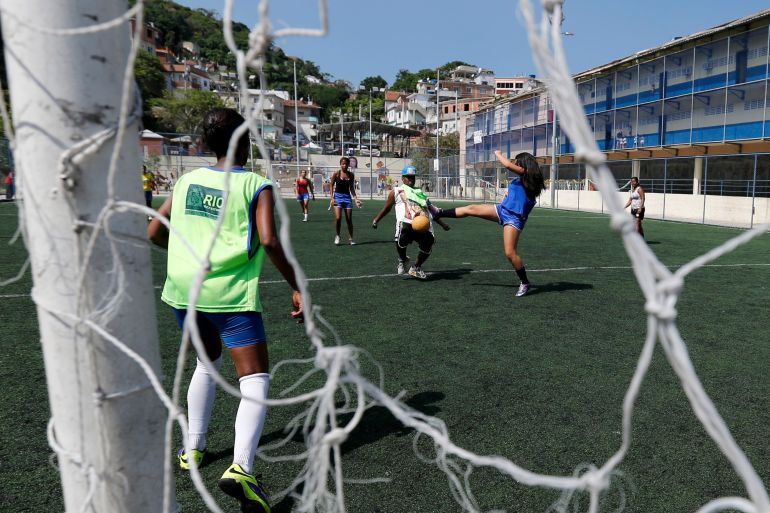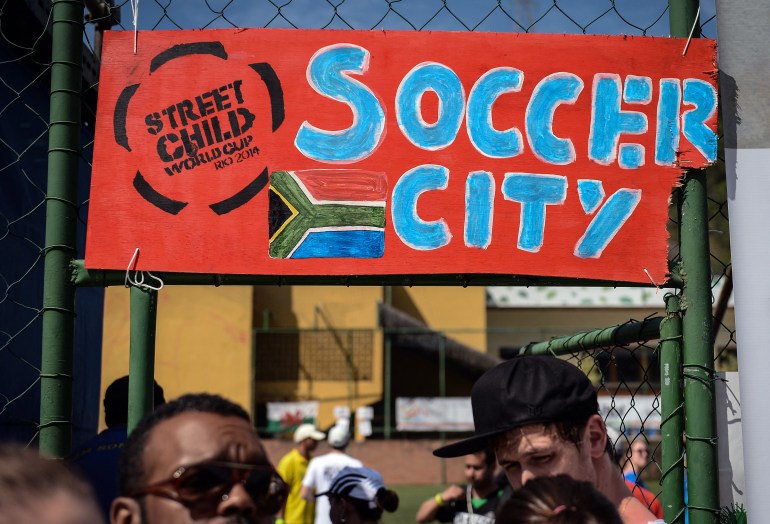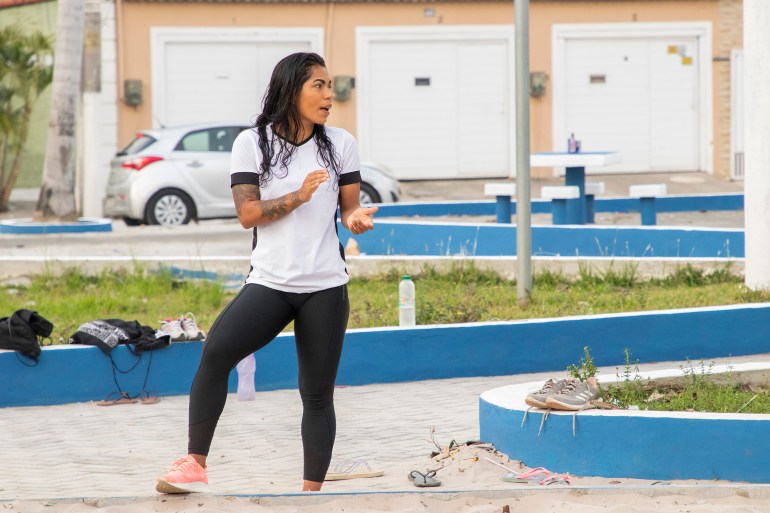How the Street Child World Cup in Qatar is hoping to change lives
Taking place in Qatar a month ahead of the FIFA World Cup, the tournament aims to empower street children across the world.

Doha, Qatar – Qatar has been preparing to host the FIFA World Cup 2022 since winning the bid in 2010. But just over a month before the mega-event kicks off, the capital Doha will play host to the Street Child World Cup (SCWC).
The 11-day event, which includes 28 teams from 24 countries, will take place from October 5 at Oxygen Park in Education City, which also houses Education City Stadium, one of the eight venues for the Qatar 2022 World Cup that kicks off on November 20.
Keep reading
list of 3 itemsHow football is helping Yemenis cope with the prolonged war
Kalyan, first Indian footballer in UEFA Women’s Champions League
“In 2008, I met a boy named Andile who lived on the streets,” John Wroe, co-founder and CEO of Street Child United (SCU), told Al Jazeera.
“He said when people see him on the streets, they say he’s a street child but when they see him playing football, they say he’s a person. We wanted to bring a change on the street children’s behalf and we realised that having a world cup for street children was a great way to do that.”

This year’s tournament will be the fourth SCWC after South Africa (2010), Brazil (2014) and Russia (2018).
“The last 12 years have been a bit of a fairytale. We went from eight teams to 24 and all the projects we’re working with [in various countries] are much stronger and been able to bring the messages that are important for SCU, particularly around birth registration, access to education, protection from violence and gender equality.”
For Sadock John, being able to play football and taking part in the SCWC in 2010 was the turning point in his life.
Growing up on the streets and being part of various gangs breaking into houses, John said his future looked bleak and he never imagined one day being able to represent his country on the international stage.
“Football made me realise that life was more than what it was then. I’m not ashamed of sharing my story, of how I ended up on the streets and then how I got up from there,” John told Al Jazeera.

“Being a street child is not the end of the journey. You can make it out if you focus on what you want. For me, that was football then.
“When I returned [from the world cup], life started changing. I wasn’t called a street child anymore but a role model. Other parents wanted me to be close to their kids, they wanted me to talk to them about my experiences.”
Drika, who grew up in northern Brazil before moving to a community in Rio, terms football and her experience at SCWC 2014 “life-changing”.
“Football, for me, has been life-changing. Before being part of the world cup, I thought I’d be like an ordinary girl in the community — having a child when I was 15, getting married and staying at home, which is not bad,” Drika told Al Jazeera.
“But at and after the world cup, I met people from different places and that opened my mind and I thought that if I got there, I could do even more. The world was so big why would I stay just in the community.
“I never expected I would be representing my country at a world cup because I came from a small village. It was like a dream come true.”

According to the SCU, 10 teams will be participating at the SCWC for the first time, including a refugee team from Hungary as well as a girls team from Palestine.
“The long-term journey is to end children living on the streets, anywhere in the world,” Wroe said.
“It won’t happen overnight but we’ve seen significant change on the issues that are important for those young people. I’m a passionate believer that these young people have the same ambitions and potential as any other young person. They just haven’t had the opportunities. If we can play a part in helping them believe they can achieve anything, they can.”
Additional reporting by Luana Ferreira